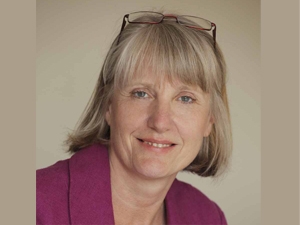
By Caitlin Osborn
Today in the UK 1 in 6 couples have difficulty getting pregnant. Many have tried IVF but with a success rate of 25%, very few are getting the results they have wished for. This leaves many couples to deal with the emotional heartache following an unsuccessful treatment as well as financial strain. With such a low success rate of IVF, it leaves many wondering why is there such a huge problem with IVF and what can couples do to increase their chances of having children.
Dr Marilyn Glenville whose program has been successful in helping couples achieve their dream answered some of these questions in an exclusive interview with Chelsea Monthly.
Chelsea Monthly: In your opinion, what are some of the reasons for there being such a high infertility rate in the UK today?
Dr Glenville:
The usual statistic quoted for couples seeking medical help for infertility is one in six but a National Fertility Survey, published in September 2007 suggests that fertility problems are more than twice as common as previously thought, with up to a third of couples struggling to conceive and many of these couples do not seek the help or advice they need. Also one in four women will experience a miscarriage.
Infertility is multi-factorial and there can be a number of reasons for the high infertility rate. Women are waiting longer to get pregnant because of following their career path or meeting the right man. And fertility declines for women more dramatically after the age of 35. We also know now that fertility decreases for men as they get older.
Age, however, isn’t the only factor. Human fertility is extremely complex and other factors can include diet, lifestyle, medical problems, stress, anxiety and also environmental and occupational toxins. Also almost 30% of fertility problems can be attributable to the man so it is important for the man to look at all these factors too.
Interestingly, the most common cause of infertility is ‘unexplained’, which means that following thorough investigations, doctors can find no identifiable medical problem. That is why it is so important to look at all aspects of health for both the man and the woman and not just focus on the medical.
Chelsea Monthly: Why is the success rate of IVF (which is 25%) so low in the UK?
Dr Glenville:
The success of an IVF depends on many factors and unfortunately it can fail at different stages of the IVF treatment cycle. So there is a lot that can wrong. The woman may not respond to the fertility drugs, this can be down to her age but there may be other reasons. So some women are not going to produce any eggs or very few. When the eggs are removed some are not going to get fertilised, this can be down to the quality of the eggs but also the quality of the sperm. And unfortunately 90% of embryos which are transferred back do not survive. And a percentage of those that do survive can be lost through miscarriage. And of course if the quality and quantity of the sperm are not good then this can also affect the IVF success rate.
Also we know that what a woman eats and drinks can make a significant difference to the success of an IVF treatment cycle. Recent research presented at the European Society of Human Reproduction and Embryology shows that having a diet which includes avocados, nuts and olive oil providing ‘good’ fats may triple the chance of an IVF working. But a woman who is drinking too much coffee, more than five cups a day, is more than half as likely to get pregnant as those women who don’t get drink coffee. The researchers went as far to say that drinking this amount of coffee was as bad as smoking for IVF success rates.
A high intake of saturated fats from butter, cheese, red meat can also lower the number of eggs produced in an IVF cycle.
Chelsea Monthly: Why did you decide to start this Support Programme? And what are some of the methods you introduce to couples through your programme?
Dr Glenville:
I wanted to run this programme because after working in this field now for over 30 years I know how much heartache and decisions women and their partners go through along their fertility journey. 1 in 3 couples have difficulty getting pregnant and because IVF only has a 25% success rate, which means that 75% of the cycles are failing, which is not only emotionally but also financially traumatic.
Women and their partners need to know that there is important information hidden away in the medical journals that shows how effective dietary, supplement and lifestyle changes can have on either conceiving naturally or boosting the success rate of IVF.
Simple nutrients like antioxidants have been shown to significantly boost male fertility and also help women improve their chances during IVF. Correct deficiencies of certain nutrients like vitamin D can have an enormous benefit for fertility both for men and women. But the women and their partners don’t often hear about all this information, practical tips they can use, simple lifestyle changes that can make the difference between getting pregnant and not getting pregnant.
The natural approach to fertility is and has been enormously successful, largely because fertility is multi-factorial. A study conducted by the University of Surrey showed that couples with a previous history of infertility who made changes in their lifestyle, diet and took nutritional supplements had an 80 percent success rate. Given that the success rate for IVF is around 25 percent, it’s worth considering these options.
This programme is so valuable for women and their partners because it shows you how an integrated approach to getting and staying pregnant gives you the best of both worlds through a combination of conventional and nutritional medicine. It is important to know that you are taking all the right steps and in the right order and this programme takes you logically through those steps.
I know from my years of working with women and couples that they wanted to be guided through their fertility journey, to know that they have ticked off all the boxes for tests, both medically and nutritionally, that they are making the right decisions at the right time and more importantly not wasting time, especially for women over the age of 35.
My aim for this programme is to able to take that woman’s hand and guide her through her fertility journey covering every aspect that she would like to know and 12 weeks is the optimum period of time. Because 12 weeks is the recommended period of time for pre-conception care because it takes approximately that long for the follicles on a woman’s ovaries to develop before one is mature enough to release an egg at ovulation.
Most women are born with about 2 million egg follicles; by puberty there are about 750,000, and by the age of around 45, as few as 10,000 may be left. So although you cannot change the number of eggs you have, you can certainly change their quality and this is the important point. By improving the quality of your eggs, you are increasing your chances of conceiving naturally or improving the success rate of IVF and also reducing the risk of a miscarriage.
Many women I see in the clinic are told that they have ‘old’ eggs and that there is nothing wrong with the IVF technology, the problem is with them. That is devastating terminology and it is true that the eggs in a woman of 35 are older than when she was 20 but as long as she is ovulating it is possible to change the quality of those eggs to either give her the chance of conceiving naturally or achieving success on an IVF cycle with her own eggs.
Also many women have high FSH or low AMH levels (indicating lower ovarian reserve) and this makes it difficult for their bodies to respond to the IVF drugs but it does not stop them conceiving naturally.
With men, it also takes at least three months for a new batch of sperm cells to mature, ready to be ejaculated. Men produce sperm all their lives so it is always possible not only to improve the quality but also the quantity with lifestyle and nutritional changes.
In addition, it can take from six weeks to three months to eliminate certain toxins from your system properly, and to raise the level of crucial fertility-boosting nutrients in your bloodstream. Research spearheaded by European doctors, suggests that a good three-month programme of healthy living and eating will maximise your chances of conception.
My aim in putting together this programme together is to give women and their partners control back over their fertility.
Chelsea Monthly: What are some of the ways couples not in your programme can increase their chances of conception?
Dr Glenville:
It is important that couples look at their diet to see how they can both be eating healthier and to eliminate some foods or drinks like coffee and alcohol that may be affect conception. Also to take certain nutrients in supplement form like zinc and selenium that we know can increase fertility and also to assess their lifestyle as stress can have a negative impact on trying to conceive.
Chelsea Monthly: What do you tell couples that have tried IVF serveral times unseccessfully to encourage them for one more try, as it is hard for many to want to try again with so many failures?
Dr Glenville:
I tell couples to make sure that they are doing something different this time around. Give themselves three months to work on boosting their fertility so that when they do the IVF again, both the eggs and sperm are a different quality and with the sperm it is also possible to increase the quantity.
Chelsea Monthly: How can couples with infertility problems get involved in your programme?
Dr Glenville:
They can go either come into one of my clinics in London (Kensington and St John’s Wood), Kent or Dublin for personalised individual fertility help or there is an online video series where they can choose one or more of up to 12 videos and select those topics that are most important to them (they also get the fertility supplements I use in the clinic included with the videos). The videos cover advice on diet, hormone balance, assisted conception techniques and male infertility
Dr Marilyn Glenville PhD is the UK’s leading nutritionist specialising in women’s health. She is the Former President of the Food and Health Forum at the Royal Society of Medicine and a registered nutritionist. She has written a number of internationally bestselling books including ‘Getting Pregnant Faster’, ‘The Natural Health Bible for Women,’ and ‘Fat around the Middle’. For more in depth information look on Marilyn’s website www.marilynglenville.com.
For more information about Marilyn’s Programme or to watch video’s visit http://www.marilynglenvilleeducation.com/how-can-I-get-pregnant
If you are interested in a consultation you can contact Dr Glenville’s clinic on 0870 5329244 or by email: health@marilynglenville.com








